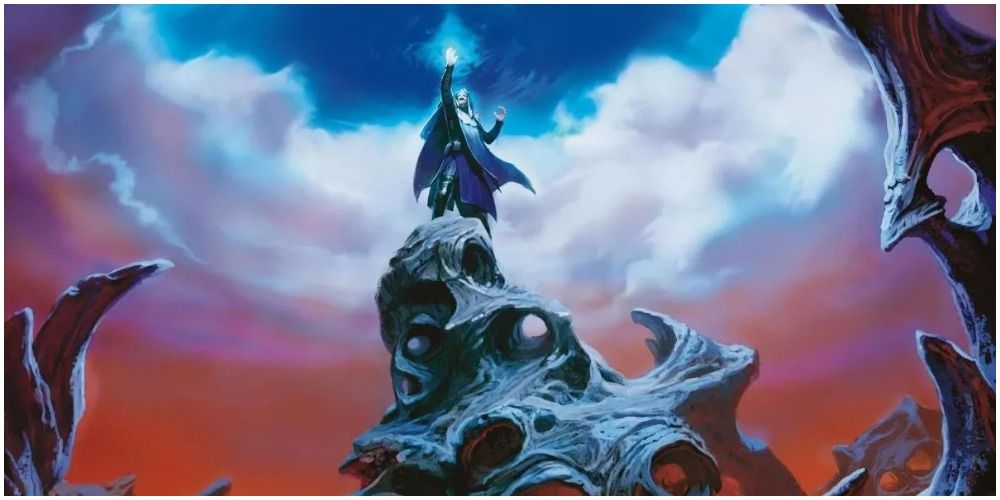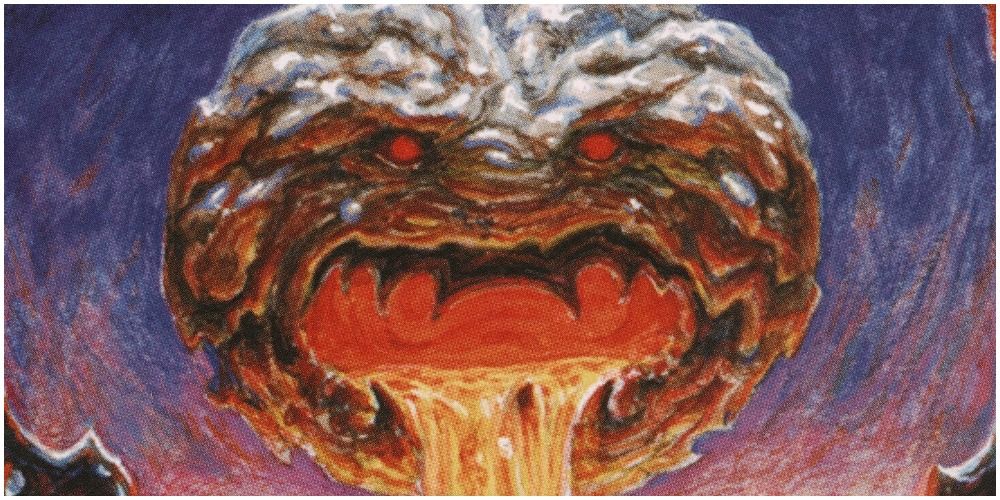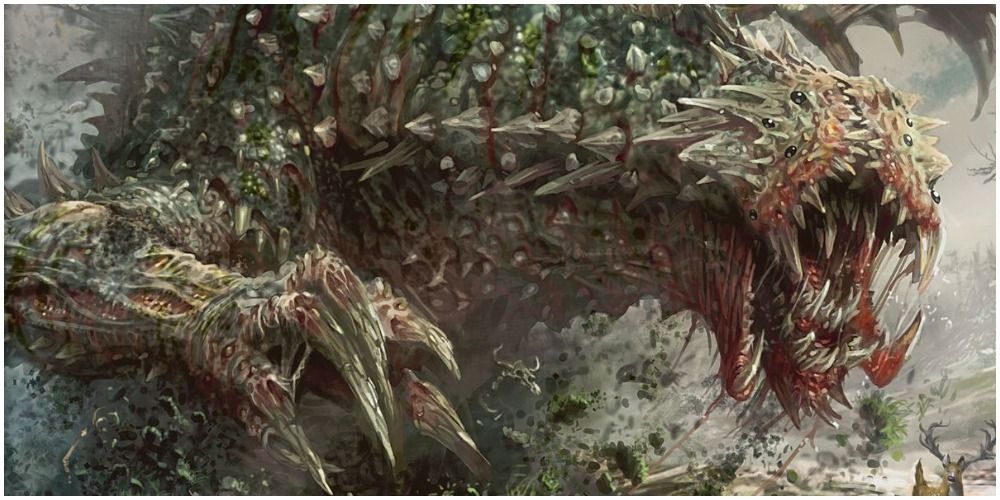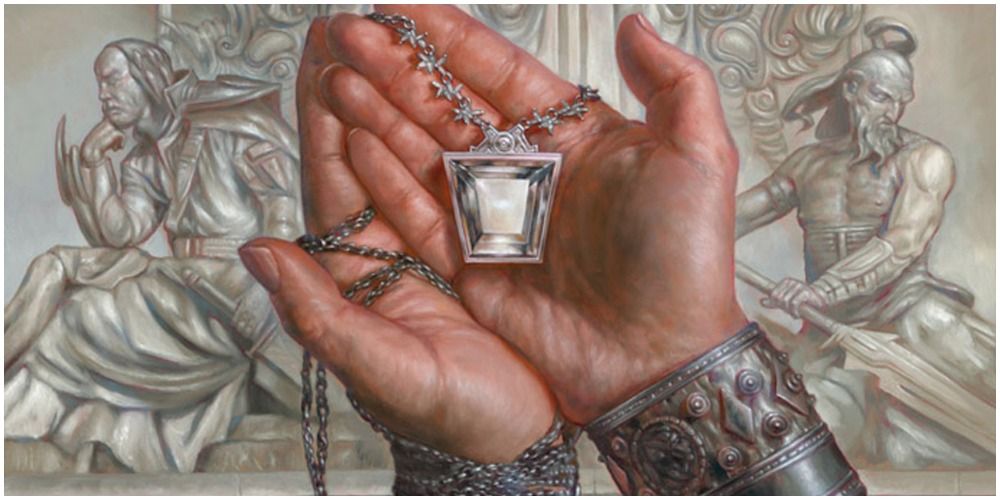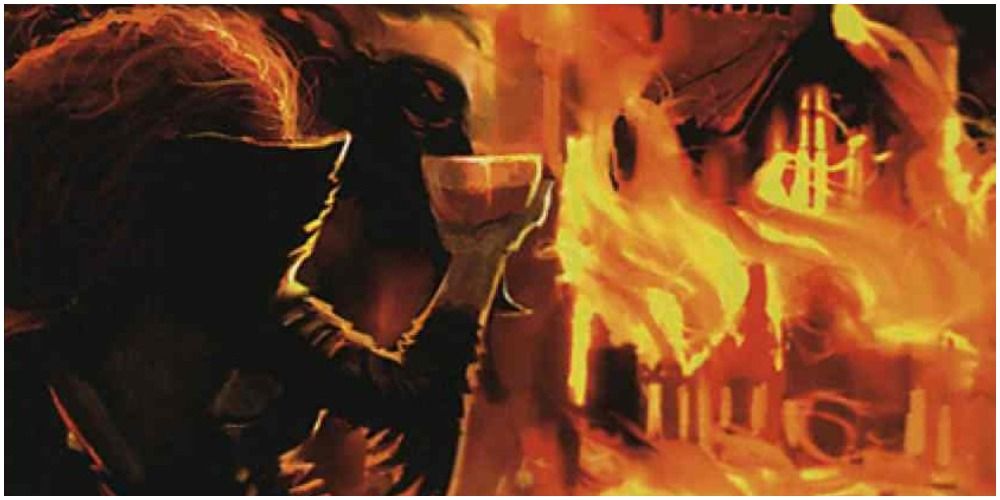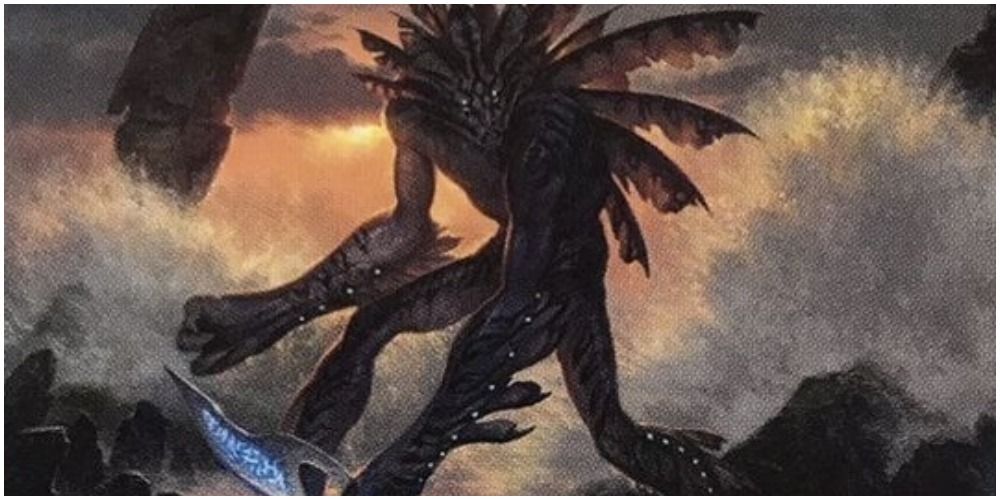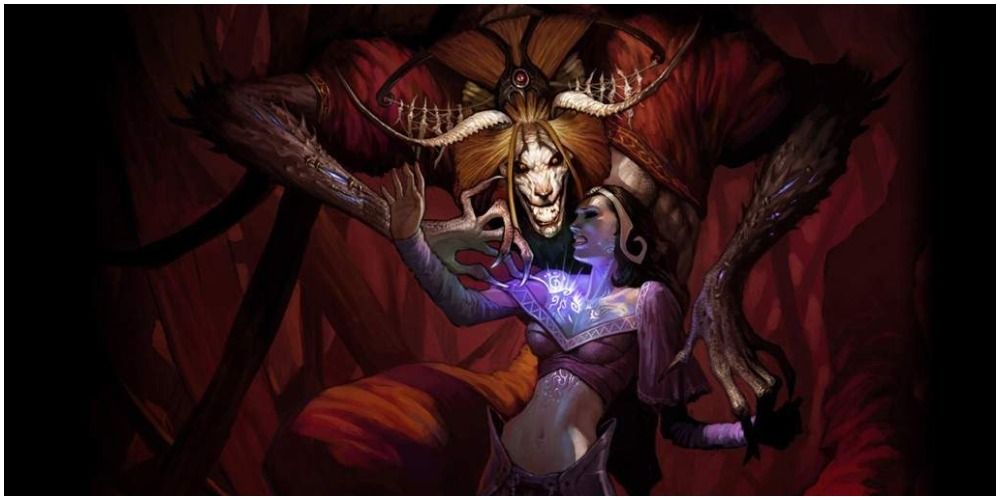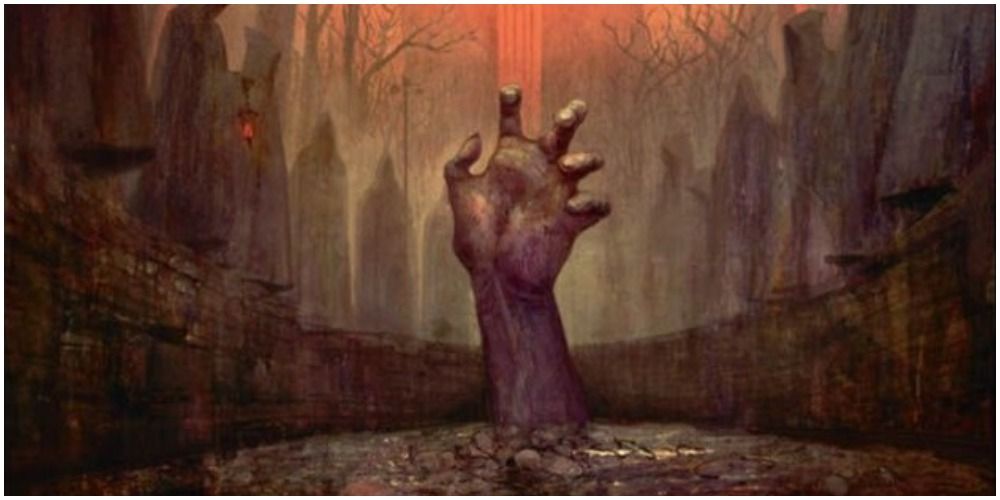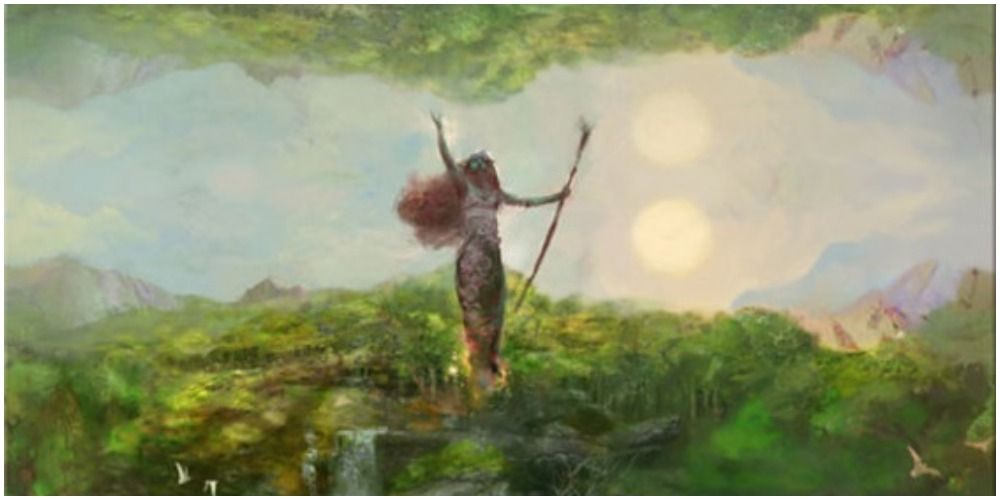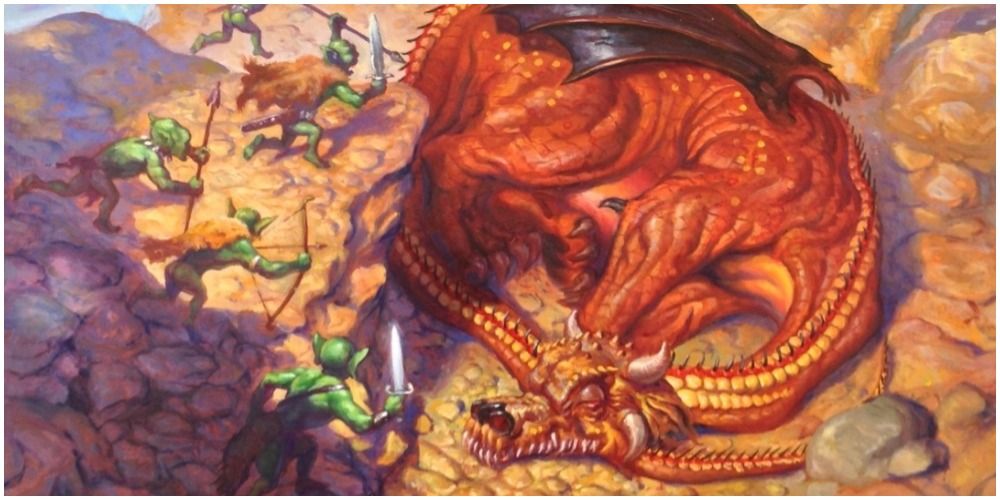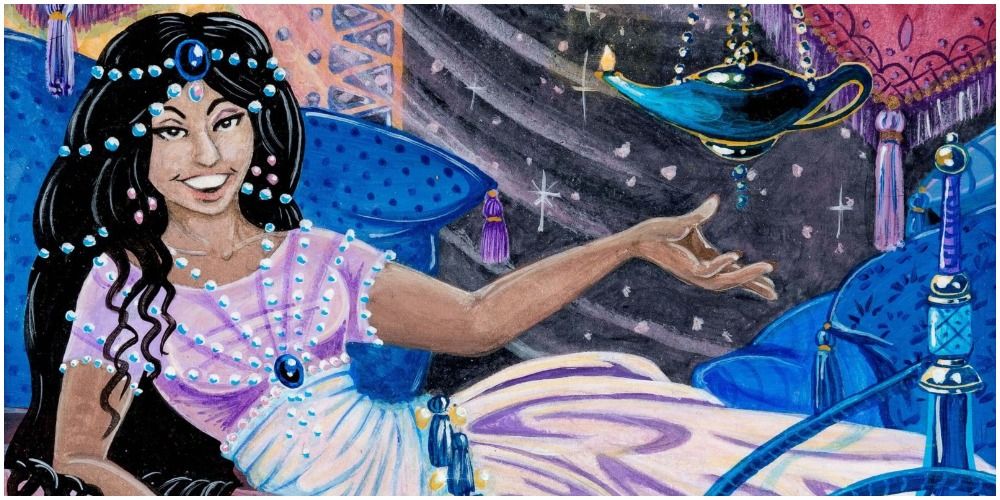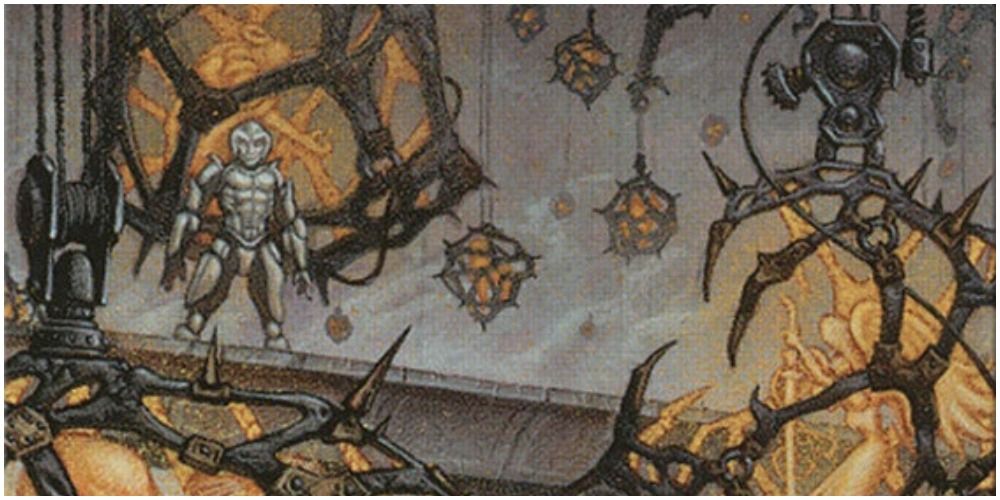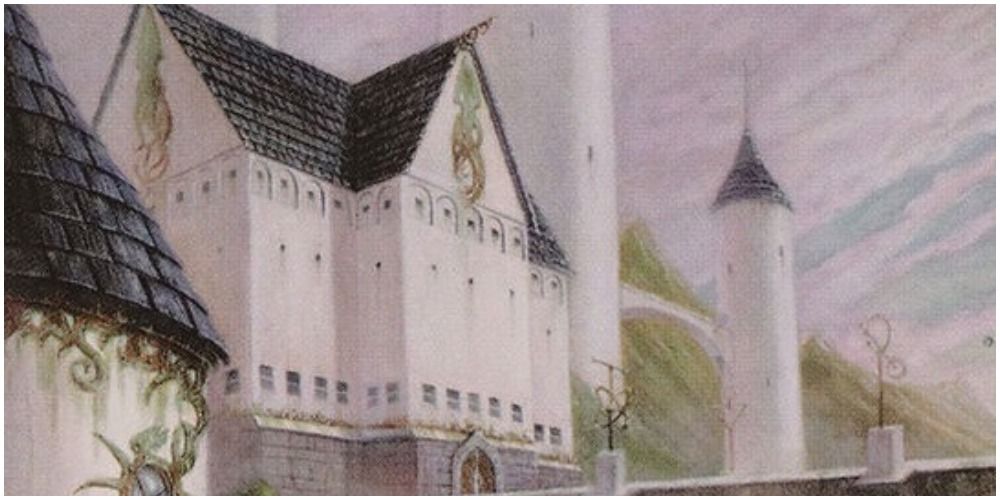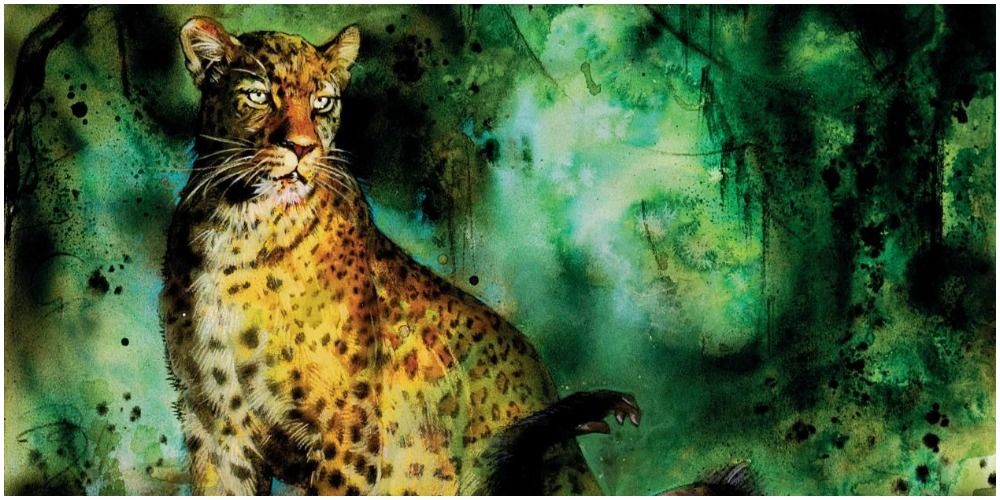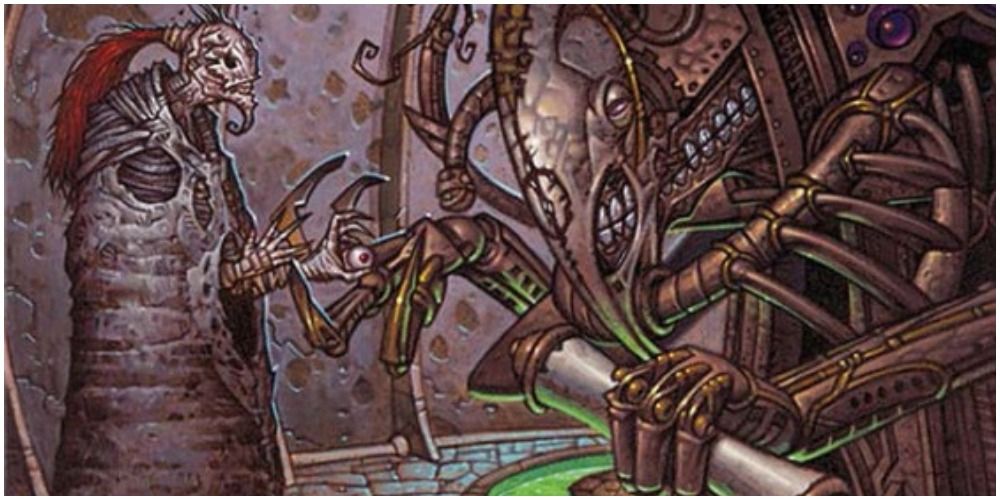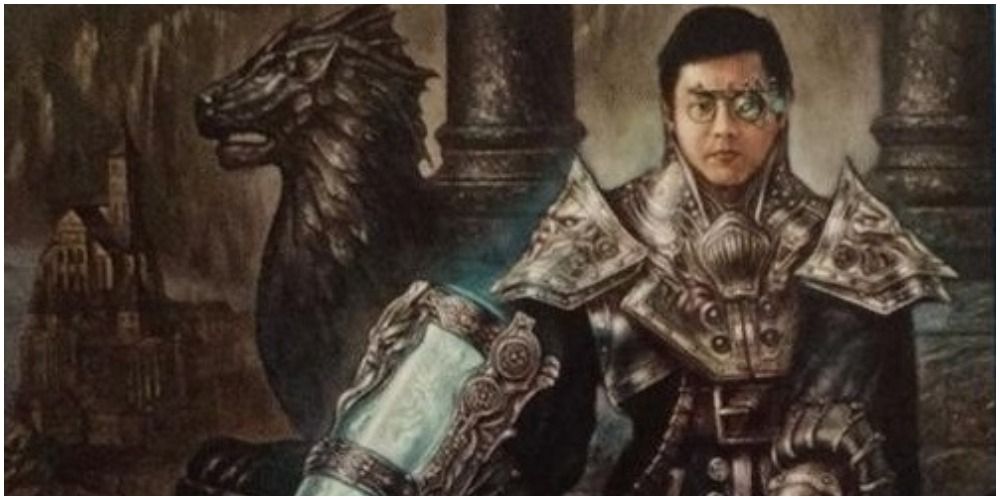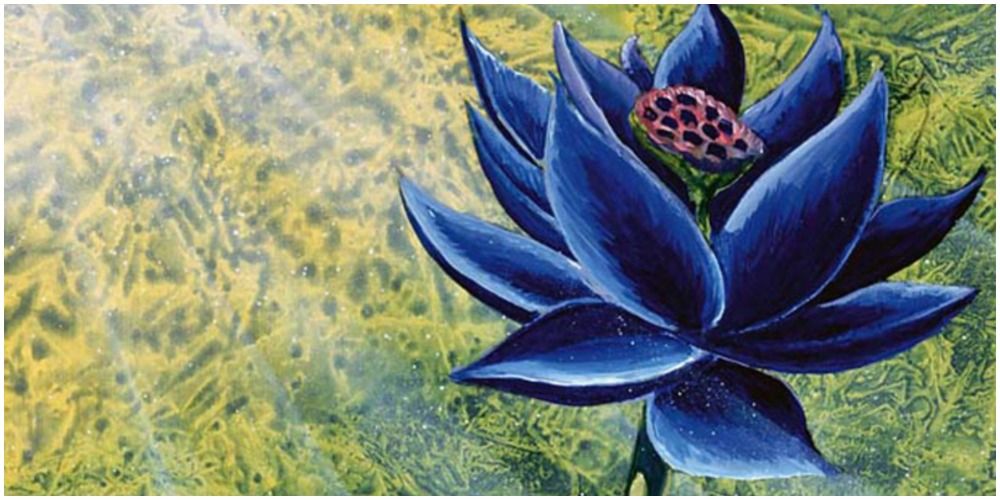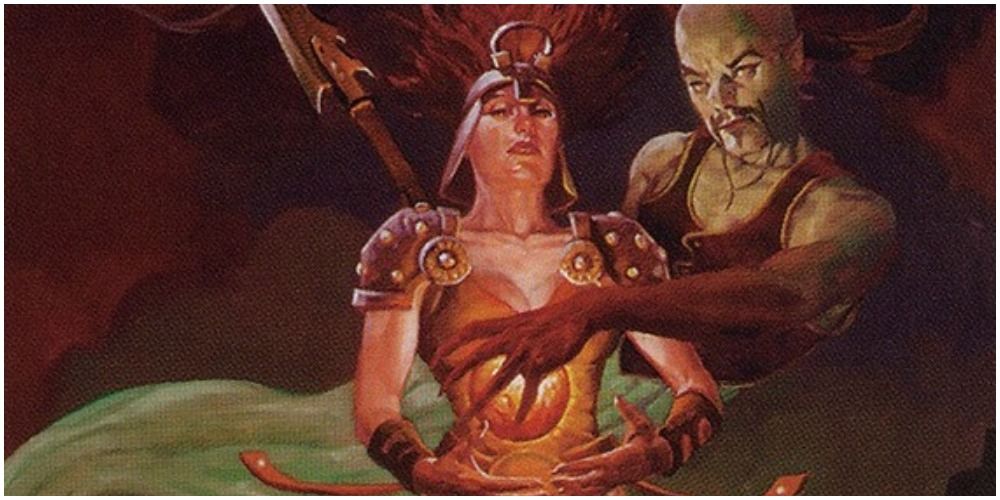Fans of competitive card games are quick to break down the strengths and weaknesses of each new card that is added to the game, as the tournaments involved with the biggest games often have cash prizes for the winner, which means that finding an exploit or combo can lead to earning money. If a card or combination of cards becomes too powerful, then they are often placed on a banned or restricted list that prevents or limits their use in official tournaments.
Magic: The Gathering has maintained a ban list for a long time, with the first one being introduced in 1994. There are some names that were added to that list that have been there since the '90s, with only the loosest of formats allowing their use in any capacity. The ever-shifting nature of the cards that are allowed in Magic: The Gathering tournaments has meant that cards can be added or removed from the ban list at any time, which has left some fans cheering at the inclusion of overpowered cards and puzzled as to why certain cards have yet to be sealed away.
We are here today to determine which Magic: The Gathering cards deserve their place on the ban list and which ones should be put on it - from the ball that needs a deft hand to use to the spell that can bring assistance from outside of the game.
Here are the 10 Magic: The Gathering Cards So Powerful They Were Banned (And 10 That Should Be)!
Banned: Chaos Orb
Chaos Orb has one of the most unusual play methods of any card in Magic: The Gathering, as it requires a degree of dexterity and accuracy on the part of the player in order to be used effectively. Chaos Orb is an artifact that costs two mana to play and that is activated by flipping it into the air from a height of at least one foot. If Chaos Orb is touching any cards when it lands on the table, then those cards are destroyed, along with Chaos Orb.
The fact that the usefulness of Chaos Orb is tied to physical activity is partly why it is banned, as some players could become skilled at making it land where they desired and use it to destroy anything they wanted. There is also the issue of actually moderating the use of Chaos Orb at tournaments.
Should Be: Tarmogoyf
Tarmogoyf may have a name that seems like it was created by pulling Scrabble tiles out of a bag, but don't let it fool you, as Tarmogoyf's power is equal to the difficulty of the pronunciation of its name.
Tarmogoyf is a green creature that costs two mana to play. The effect of Tarmogoyf is that its power and toughness are equal to the number of different types of cards in both players graveyards, with the toughness adding one to that number. It's easy to create a situation where Tarmogoyf becomes an incredibly powerful creature with a small mana cost, especially with both players contributing to its strength, allowing it to run riot over the opponent's monsters.
Banned: The Mox Jewels
The Mox Jewels (sometimes referred to as Moxen) is the name given to five different cards that all have a similar effect. The Mox Emerald, Mox Jet, Mox Pearl, Mox Ruby, and Mox Sapphire cards are all artifacts that can be tapped to give you an extra point of mana per turn, with each Mox Jewel providing a different color of mana.
The fact that the Mox Jewels cost no mana to use and had no restrictions on how many could be used at once meant that players could use multiple jewels to provide themselves with more free mana a turn than players who have to rely on land cards, which made them incredibly broken in terms of usefulness.
Should Be: Past In Flames
One of the most effective decks used by red players in Magic: The Gathering involves using burn effects, which is the name given to cards that deal direct damage outside of combat. Red decks have access to lots of instants and sorceries that can deal direct damage to the player, which can be used a second time with the aid of Past in Flames.
Past in Flames is a sorcery that gives all instants and sorcery cards in the graveyard the flashback ability, which lets you pay their mana cost to play them from the graveyard. A well-timed Past in Flames can allow the player to fire off all their damage-dealing spells at the opponent. It takes a lot of mana to pull off, but it can win the match in a single move if it's used at the correct time.
Banned: Time Walk
Blue Magic: The Gathering decks can be annoying to play against at the best of time, but the king of frustrating blue cards has to be Time Walk. Time Walk is one of the oldest Magic: The Gathering cards, which may give an excuse as to why the developers of the game couldn't see how broken it was from the start.
Time Walk gives you an extra turn for the cost of two mana, which means that you have a fresh opportunity to cast spells, summon creatures, or do whatever else you want while the opponent just sits there. You can use a single Time Walk in your deck when playing the Vintage format, which is meant to curb the card's potential for spamming extra turns, but it's still banned in the other formats and a single use of Time Walk is still incredibly powerful.
Should Be: True-Name Nemesis
Magic: The Gathering is commonly played using two players, but there are some multiplayer formats that allow several players at once. There is a card called True-Name Nemesis that was clearly designed for multiplayer use, as its effect requires you to target a player, at which point the creature becomes immune to anything controlled by that player.
The fact that True-Name Nemesis is legal in two-player formats means that you can just target your opponent and summon a creature that can chip away at them while being incredibly difficult to remove from the field. There are some effects that can damage or destroy the True-Name Nemesis, but these are far more limited than what you would use to deal with other creatures in the game.
Banned: Demonic Tutor
Demonic Tutor debuted in the first Magic: The Gathering set and was so powerful that the term "tutor" came to be used as a shorthand name for any card that allowed you to search your deck.
Demonic Tutor is a sorcery that lets you pay two mana in order to allow you to search your library for any card and add it to your hand. The ability to search your deck for any card that you might need at that moment in time means that there is almost no time when a Demonic Tutor wouldn't be the most useful card that you could draw. There have been many variants of Demonic Tutor released over the years, but they have either had a higher cost in order to use them or had harsher restrictions for the kind of cards that they could search for.
Should Be: Entomb
Black decks in Magic: The Gathering are all about necromancy, which manifests in cards that allow you to summon creatures from the graveyard to the field. The intention behind a lot of revival cards is that they are meant to bring back creatures that had been slain in battle so that you can quickly bring them back to the field.
Entomb lets you pay a single black mana to put a creature from your library into the graveyard, which means that it has amazing combo potential with the various black revival cards (like Exhume) in order to let you summon your nastiest creatures to the field while bypassing their cost.
Banned: Fastbond
One of the rules of Magic: The Gathering is that you can only play one land card per turn, except for instances in which a card effect would allow you to play more. The reason this rule is in effect is to make the game more balanced, as a player who draws a bunch of lands on their first turn would have a tremendous advantage over a player that hadn't.
The Fastbond card allows the user to play as many lands as they want per turn, with the drawback that each additional land after the first deals a point of damage. Taking a point of damage is a small price to pay for an extra land, especially at the start of a match, which is what led to this card being banned in almost every format.
Should Be: Sneak Attack
Red decks in Magic: The Gathering are all about dealing damage through spells or creatures, which can easily shave the opponent's life points down to nothing in a matter of turns. One of the greatest tools in a red deck is the Sneak Attack enchantment, which allows you to pay a single red mana to summon any creature from your hand, which gains haste but will also be sacrificed at the next end step.
Sneak Attack acts as both an amazing offensive tool and a trap to destroy troublesome enemies. Sneak Attack can be used to secure a quick victory by summoning your entire hand for an all-out attack, as the sacrifice drawback is meaningless if it allows you to win in a single move.
Banned: Shahrazad
The vast majority of Magic: The Gathering tournaments have a strict time limit for each match, as it is the job of the organizers to keep each bracket running smoothly and not have players sitting around while waiting for a single game to finish.
Shahrazad has the potential to be a very powerful card, as it gives you the chance to strip half of the opponent's life points away while also getting a peek at the other cards in their deck. The real reason why Shahrazad is banned in every format is due to the fact that it forces both players to start a new game of Magic using the remainder of their deck, which means that matches could be artificially lengthened to a frustrating degree.
Should Be: Dream Halls
The reason why mana exists in Magic: The Gathering is to act as a limiter on what the player can use each turn and give both players a chance to slowly build their defenses over the first few turns, rather than being able to go all out straight away.
Dream Halls bypasses the restrictions of mana cost, as it's a blue enchantment that costs five mana to cast and allows you to cast any spell by discarding another card of the same color. The number of combos that you can perform using Dream Halls is staggering alone, but the fact that it's a blue card makes it even worse, as the incredibly powerful instants and sorceries that are usually restricted until late in the game due to mana issues are suddenly fair game for almost no cost.
Banned: Tolarian Academy
The Mox Jewels and the Black Lotus are considered to be some of the most broken cards in Magic: The Gathering, but Tolarian Academy may be even more powerful than the members of the infamous "Power Nine" due to the amount of mana it can provide. Tolarian Academy is a land card that gives you a point of blue mana every turn for each artifact you control.
There are lots of Magic: The Gathering decks that rely heavily on artifacts, which means that Tolarian Academy would be able to give them more mana a turn than they would know what to spend it on. It's due to this level of potential abuse that Tolarian Academy is banned in almost every format.
Should Be: Natural Order
The strength of green decks in Magic: The Gathering is based on an abundance of powerful monsters that can tear the enemy apart. It's pretty easy to summon some of the nastiest monsters in the game by using Natural Order.
Natural Order is a green sorcery card that costs four mana to play. When Natural Order is played, you sacrifice a creature on the field in order to summon any other creature card from your library onto the field. For the measly cost of four mana, you can turn a puny Llanowar Elves card into a Stonehoof Centaur, a Khalni Hydra, or whatever other powerful creatures are allowed in the format you are using.
Banned: Ancestral Recall
Time Walk might be the most broken blue spell in the history of Magic: The Gathering, but Ancestral Recall is a close second. Ancestral Recall is an instant card that only costs a single blue mana to play. The effect of Ancestral Recall is that it lets you draw three cards.
The ability to add more cards to your hand might seem like a relatively benign effect, but the number of cards you have available to you at any time is the key to victory in most competitive card games and Magic: The Gathering is no exception. It's for this reason that you see similar cards in other games also being banned, like Pot of Greed in Yu-Gi-Oh!
Should Be: The Dual Lands
The purpose of any competitive card game is to make money, which is why the Standard format in Magic: The Gathering requires you to use cards from the most recent sets. There are several different Magic: The Gathering cards that are considered to be dual lands, which is the term given to lands that produce two different kinds of mana instead of one.
The issue with dual lands is the fact that they are uniformly better than the common lands that only produce one kind of mana, which has led to players spending a lot more money than they would have in search of them, due to the advantages that dual lands provide. The rarity of dual lands only exacerbates this problem, especially when they become tournament legal in different formats.
Banned: Yawgmoth's Bargain
The ability to draw or search for extra cards outside of the draw step is usually the purview of blue cards, but black once had one of the best drawing machines in the game.
The reason why Yawgmoth's Bargain is so broken might not be apparent at first due to sloppy wording on the card. Yawgmoth's Bargain is an enchantment that costs six mana to play and forces you to skip your draw step, in order for you to pay one life to draw a card. The wording on Yawgmoth's Bargain isn't clear, but you can spend as many life points as you want during a single turn in exchange for more cards, allowing you access to most of your deck, should you be willing to give up most of your life.
Should Be: Snapcaster Mage
Blue decks in Magic: The Gathering don't have many powerful creatures to call upon in battle, which is why their strength lies in instant and sorcery cards to harm the opponent. There is a mechanic in Magic: The Gathering called flashback that allows cards to be played from the graveyard for a price.
The Snapcaster Mage card gives every instant and sorcery card in the graveyard the flashback ability when it enters the field, which means that the player can have access to a wide variety of powerful spells depending on when Snapcaster Mage is summoned. A player who waits until late in the game to use a Snapcaster Mage can call upon all kinds of instants and sorceries, which can easily swing the match in your favor or give you an overwhelming advantage over the opponent.
Banned: Black Lotus
Black Lotus has often been called the best card in the history of Magic: The Gathering, which has a lot to do with its simplicity. Black Lotus is an artifact that costs no mana to play and allows you to sacrifice it in order to receive three mana of any color.
The ability to give yourself a boost of any color of mana for free is something that is useful in numerous situations, such as needing a bit of extra mana to summon an evil creature or needing the juice to power a counter to a card that the opponent has just played. The possibilities are endless for a Black Lotus user and one of them could be fitted into every deck imaginable. As powerful as the Black Lotus is, you still wouldn't see the original version of the card being played in tournaments, but that's due to the fact that high-quality copies of the card often sell for over twenty-five thousand dollars.
Should Be: Burning Wish
A card like Burning Wish is just asking for trouble. Burning Wish is a red sorcery card that costs two mana to cast. The effect of Burning Wish allows you to summon another sorcery card from outside of the game, as in a card that isn't in your library.
The effect of Burning Wish has been reigned in somewhat in competitive settings, as the official rulings state that it can only search for cards in your sideboard, whereas it can search for any card in your collection in non-official matches. Burning Wish is a powerful tutor that can search for cards that are stored in a safe location, which offers protection from the infamous blue decks that force you to draw your deck into the graveyard. The only real drawback is requiring a point of red mana to use it, which makes it less splashable in different decks than it could be.
---
Have you played with any of these powerful Magic: The Gathering cards? Let us know in the comments!

